Rio wrap-up: Schooling saves the day for Team Singapore
SINGAPORE — Ahead of the Rio 2016 Olympic Games, there was a palpable buzz of excitement and anticipation that kept growing, as Team Singapore’s athletes notched podium-worthy performances from Singapore to Slovenia, and New Delhi to Texas, to suggest that fans could see the Republic pull off its best-ever medal haul in Brazil.
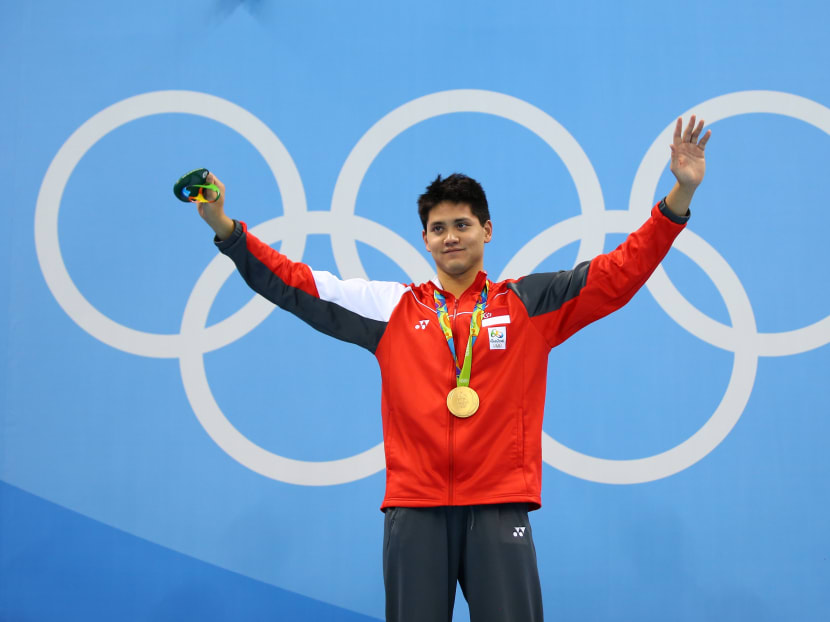
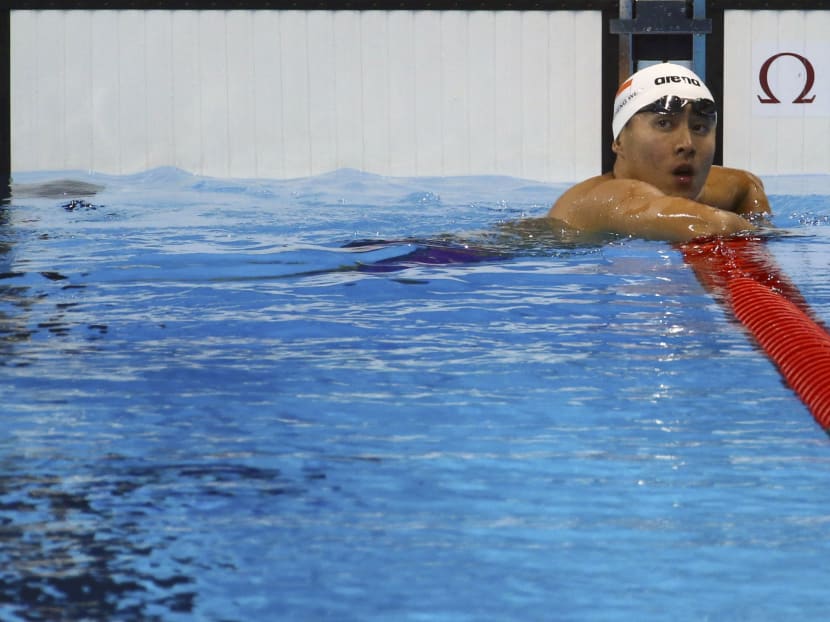
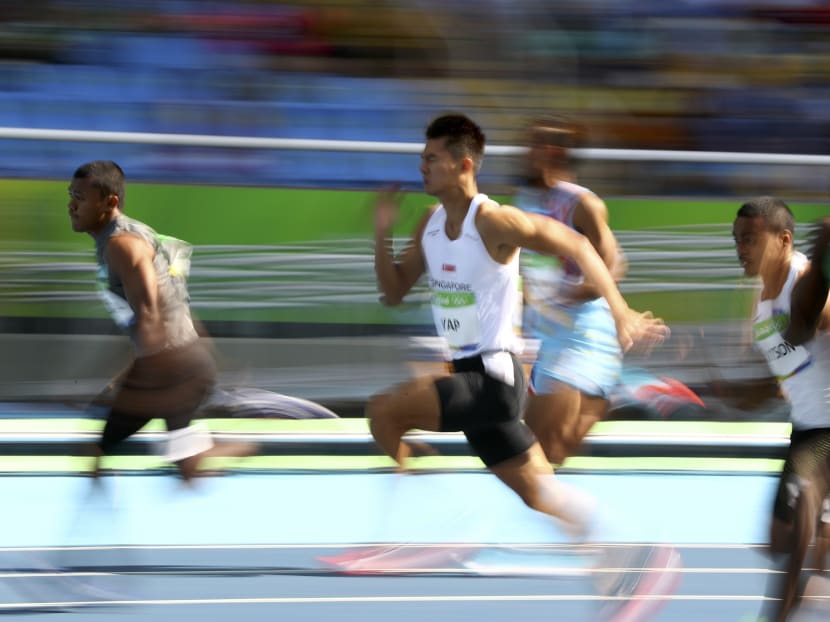
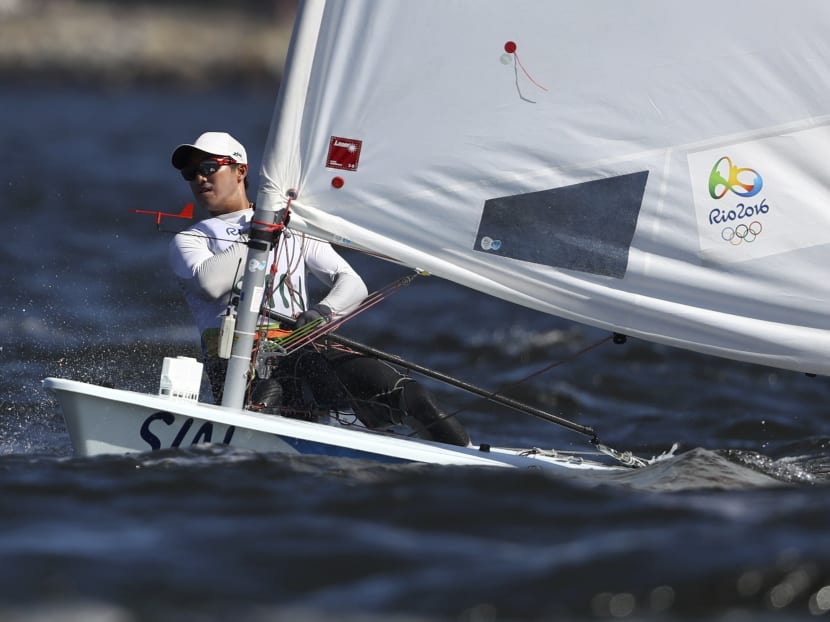
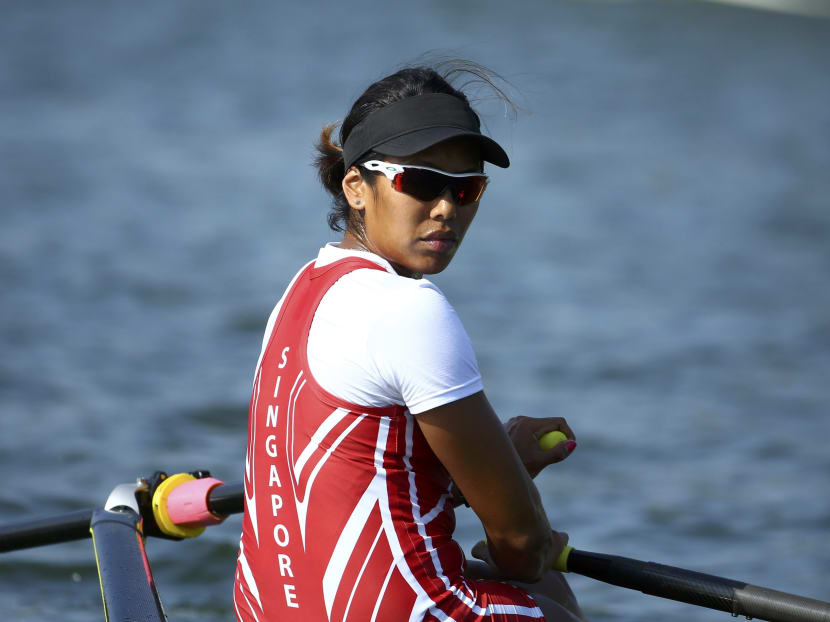
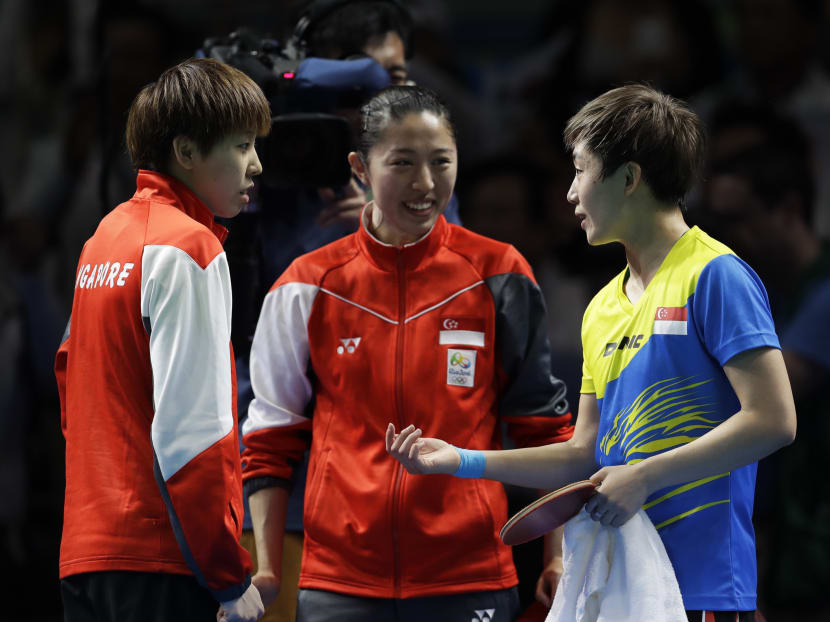
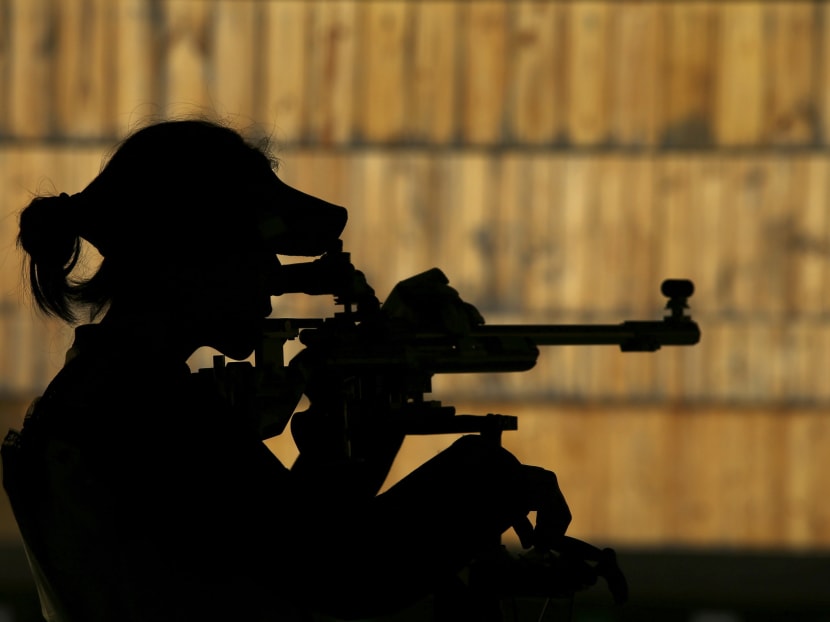
SINGAPORE — Ahead of the Rio 2016 Olympic Games, there was a palpable buzz of excitement and anticipation that kept growing, as Team Singapore’s athletes notched podium-worthy performances from Singapore to Slovenia, and New Delhi to Texas, to suggest that fans could see the Republic pull off its best-ever medal haul in Brazil.
Leading the 25-strong athlete pack — and Singapore’s hopes — was national swimmer Joseph Schooling, the Republic’s rising young swimmer eager to bounce back from a disastrous outing at the 2012 London Games that saw him fizzling out in his two events after a swim-cap-and-goggles mix-up minutes before his 200m butterfly heat.
The 21-year-old first created a huge splash at the FINA World Championships in Kazan last year, when he stormed home in 50.96sec to clinch Singapore’s first-ever world championships medal — a bronze — in the men’s 100m butterfly.
Leaner, stronger, and faster, the swimmer then sounded an ominous warning to his rivals in the pool at the Longhorn Aquatics Elite Invite meet in June, when he beat then 18-time Olympic champion Michael Phelps to gold in the 100m fly.
Also in hot pursuit of a medal were Team Singapore’s paddlers, with veteran Feng Tianwei leading the charge in the women’s singles and women’s team events in Rio.
With stalwarts Li Jiawei and Wang Yuegu hanging their bats after the 2012 London Games, it was left to world No 4 Feng — who played a key role in the sport’s three medals (one silver, two bronze) at the Beijing and London Games — to lead debutants Yu Mengyu and Zhou Yihan as the women sought to repeat their unprecedented success from four years ago.
In the months leading to the Olympics, Feng had struggled with injuries and inconsistent form, while a last-minute change in coaches triggered by a spat between Yu and then-head coach Jing Junhong threatened to derail their campaign.
But the 29-year-old then appeared to get back on track for her Rio challenge when she won the Slovenia Open in June to end a two-year drought on the professional circuit.
Over at the shooting range, Jasmine Ser’s target of a medal in the women’s 50m rifle three-positions (3P) gathered momentum, after the 25-year-old overcame food poisoning at the Asian Qualifiers in New Delhi to claim gold and earn a qualifying spot for the Olympics in the event.
Ranked 17th in the world in the 10m air rifle and 50m rifle 3P, the three-time Commonwealth Games champion also won a bronze in the 10m air rifle at the International Shooting Sport Federation World Cup in Bangkok earlier this year.
There was also optimism with Team Singapore’s 10-strong sailing contingent, with laser sailor Colin Cheng – the best Asian sailor in 2012 after finishing 15th out of a fleet of 49 – expected to fly the flag high at the Marina de Gloria in Rio de Janeiro.
Clearly, Team Singapore was feeling bullish heading into the Rio Games. Singapore chef-de-mission Low Teo Ping even told TODAY that he was confident that the Republic’s medal prospects would be just as bright, if not brighter, than the 2012 edition in London.
The Singapore National Olympic Council (SNOC) vice-president pointed to the experience of the 25-strong squad – more than a third were competing in their second or third Olympics — as reasons for his upbeat outlook.
HOW DID TEAM SINGAPORE DO?
As the euphoria from Schooling’s groundbreaking achievement in Rio — a first-ever Olympic gold, Olympic record in the 100m butterfly (50.39sec), beating American great Phelps – dies down after a whirlwind five-days of Schooling-mania, it is time to take stock of Team Singapore’s overall performance at the Olympics.
Sadly, in spite of the pre-Games hype, the fact is that, in the end, it was only Schooling who delivered on the world’s biggest stage, as Singapore’s athletes put up a disappointing overall campaign in Rio.
Tears of diappointment were first shed in the Riocentro Pavilion 3 as a genuine medal prospect blew up. Defending bronze medallist Feng was sent crashing out of the women’s singles quarter-finals after a shock straight-sets loss to Japan’s Ai Fukuhara.
The 29-year-old was soon joined by teammate Yu, who was also shown the door by North Korea’s Kim Song I after a 4-2 loss to her lower-ranked opponent.
Table tennis would suffer a second major blow a few days later when the women’s team just could not find their verve against the Japanese in the bronze-medal match, as an out-of-sorts Feng dropped two points against Kasumi Ishikawa and teenager Mima Ito en route to Singapore’s 3-1 loss to the world No 2 team.
It meant the end of a medal-winning streak for Singapore’s paddlers after their team silver at the 2008 Games and team and singles bronzes in 2012.
Meanwhile, sailor Colin Cheng could not replicate his 2012 Olympics performance in Brazil, as he placed 20th among the 46-strong fleet. Indeed, if there were any bright moments, they were delivered by 49er FX pair Griselda Khng and Sara Tan who scored a seventh-spot and two eighth-placed finishes during their 12 races to finish an eventual 15th out of 20 boats.
Medal-hopeful Ser had declared that she was targetting a podium-finish but she just could not bring her ‘A’ game to Deodoro’s Olympic Shooting Centre. The 25-year-old did not qualify for the final of her pet event, the 50m rifle 3P, after placing 34th out of 37 with her total of 568 over 60 shots.
But there were a couple of bright sparks for Team Singapore in Rio to lift the general gloom.
Swimmer Quah Zheng Wen – the youngest among the squad at 19 — posted new personal best times in the men’s 100m and 200m butterfly, reached the semis of both events, and finished 15th and 10th overall respectively. Indeed, he missed out on the 200m fly final by just 0.08seconds.
Rower Saiyidah Aisyah Mohamed Rafa’ee, who had already made history by becoming the first Singapore rower to qualify for the Games, put in a strong showing at the Lagoa Rodrigo de Freitas as she finished 23rd overall. The result made her the third best Asian rower among the field and has put her in medal contention at the next Asian Games in 2018.
WHAT WENT RIGHT, OR WRONG?
While Schooling deserves to be lauded for his tenacity, determination and brilliance in the pool, Team Singapore’s mixed showing at the Rio Olympic Games have brought into sharp focus some issues that need to be addressed in the next four years before the 2020 Tokyo Games.
Top on the priority list is the athletes’ mental game at major events, as shown in Ser’s sub-par performances on the shooting range — which coach Kirill Ivanov attributed to “psychological reasons” — and even paddler Feng, who admitted that the pressure of delivering medals had affected her in the singles and team event.
The national sports associations’ selection criteria will also be called into question, particularly after Singapore Athletics’ wildcard controversy that was only resolved at the eleventh hour — it was eventually awarded to hurdler-turned-sprinter Timothee Yap.
Team Singapore’s sailors had already notched a significant achievement before the flag-off of the sailing competition after qualifying a record-high of 10 athletes across seven classes - with 80 per cent making their Olympics debut in Rio — but unfamiliarity and inability to cope with Rio’s tricky wind conditions and strong competition from other nations hampered the sailors’ progress in this Games.
While some sailors had previously travelled to the city for test events or acclimatisation training, Singapore Sailing Federation performance manager Chua Tan Ching stressed that they need to train full-time in order to perform well and progress up the ranks among their rivals.
TODAY’S REPORT CARD
There is no denying that Schooling is the feel-good success story of the Rio Olympic Games, with the swimmer’s gold-medal win single-handedly pushing Team Singapore’s overall score up by several notches.
However, his achievement help Singapore to momentarily forget about the other disappointing results, in hindsight, it has been dulled by what has largely been a poor outing for most of the Singapore contingent, as can be seen by TODAY’s recap and assessment of how the individual sports performed.
Many of Singapore’s athletes will need to regroup for the 2020 Tokyo Games in order to keep up with their Olympic peers. Otherwise, we will just end up being dependent on swimming to deliver joy to Singapore again in four years’ time.
OVERALL GRADE: B-
WHAT SINGAPORE’S CHEF DE MISSION LOW TEO PING SAYS:
“Joseph Schooling’s phenomenal performance in the 100m butterfly and in Olympic record time was the highlight for Team Singapore. We are generally pleased with the performance of all the athletes despite some not being able to perform beyond their personal best bearing in mind that they were competing with the world’s best in their respective disciplines. Overall, we are pleased with the results and glad that this has been a safe and successful outing for Team Singapore.”








